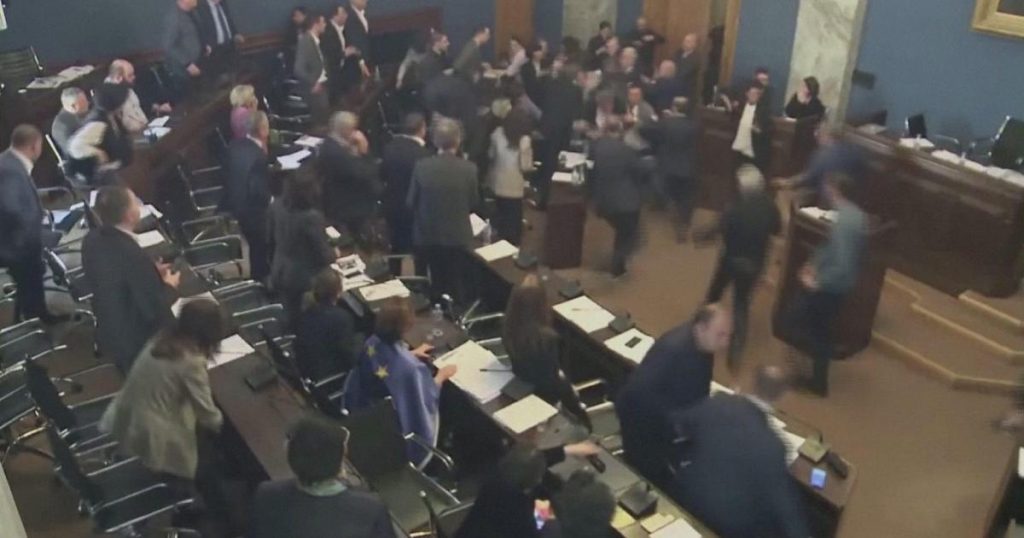Aleko Elisashvili, leader of the Citizens’ Party, sparked a heated confrontation in the Georgian Parliament during a debate on the controversial law on foreign agents, which could greatly limit freedom of assembly and the expression of dissent, similar to the law currently in force in Russia. Elisashvili attacked the leader of the parliamentary majority, Mamuca Mdiranadze, causing chaos in the chamber. He was later removed from the chamber. Outside the Parliament building in Tbilisi, a group of protesters supporting European integration waved blue-gold flags.
The incident in the Georgian Parliament reflects the ongoing political tensions in the country over issues such as freedom of speech, human rights, and foreign influence. The proposed law on foreign agents has been criticized by opposition parties and activists as an attempt to stifle dissent and limit civil liberties. The clash between Aleko Elisashvili and Mamuca Mdiranadze highlights the deep divisions within the political landscape of Georgia, with different factions standing firm in their beliefs and goals.
The participation of demonstrators outside the Parliament building waving European flags indicates a strong desire among some Georgians for closer ties with the European Union and Western values. The European integration process has been a key aspect of Georgia’s foreign policy in recent years, with the country seeking closer economic and political cooperation with the EU. The presence of pro-European protesters at the scene of the parliamentary confrontation signifies a broader debate within Georgian society about its future direction and alignment with Western or Eastern powers.
The actions of Aleko Elisashvili in physically attacking Mamuca Mdiranadze have been met with condemnation from political leaders and the public, highlighting the need for respectful dialogue and peaceful resolution of conflicts. The incident underscores the volatile nature of political discourse in Georgia, where tensions can quickly escalate into physical confrontations. In order to maintain stability and advance democracy, it is crucial for political leaders to engage in constructive debates and find common ground on important issues, rather than resorting to violence.
The controversy surrounding the law on foreign agents in Georgia is part of a broader debate about the country’s democratic values and commitment to human rights. Critics argue that the proposed legislation could severely limit freedom of expression and association, undermining the principles of democracy and the rule of law. The clash in the Georgian Parliament over this issue reflects the deep-seated divisions within Georgian society over the balance between security concerns and civil liberties, as well as the influence of foreign powers on domestic politics.
Overall, the confrontation in the Georgian Parliament involving Aleko Elisashvili and Mamuca Mdiranadze highlights the complex political dynamics in the country, where competing interests and ideologies clash over key policy issues. The presence of pro-European protesters outside the Parliament building underscores the ongoing debate within Georgian society about its future direction and alignment with Western values. The incident also underscores the importance of peaceful dialogue and respect for democratic norms in resolving political conflicts and advancing the country’s democratic development. It remains to be seen how Georgia will navigate these challenges and uphold its commitment to democracy and human rights in the face of internal and external pressures.


